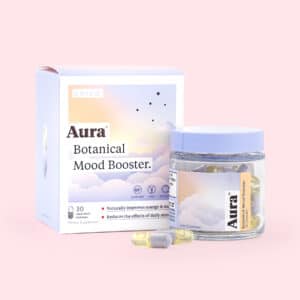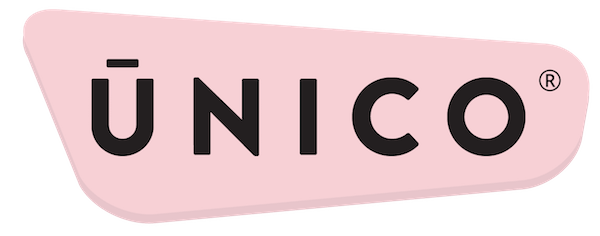You may have heard that folate is a key nutrient in having a healthy pregnancy, but did you know that the benefits of folate go far beyond that?
It’s true. Folate is an essential vitamin for beauty, brains, and keeping you healthy overall.
It also has special importance when it comes to women’s health.
Let’s dive into some of the recent science behind this wonderful micronutrient.

What is Folate?
Folate is a water-soluble vitamin that is also referred to as vitamin B9.
It was discovered back in 1931 by researcher Dr. Lucy Wills when she found that this unique vitamin prevented macrocytic anemia during pregnancy.1
Folate is needed for DNA synthesis, cell and tissue development, and proper red blood cell function.
There are different forms of folate available including a new, exciting form called methylated folate, but the most well-known forms are folate and folic acid.
Folate vs Folic Acid
The differences between folate and folic acid can be summed up in this one quote by Ina Garten:
“If you can’t make your own, store-bought is fine.”
In other words, folate is the naturally-occurring form of vitamin B9 that is found in foods.
Folic acid, on the other hand, is a synthetic form of vitamin B9 which is added to foods.
Both of them can be beneficial to your body, so it’s good to get folate from different sources.
Folate and folic acid differ in both their molecule form, and bioavailability.
Bioavailability: Refers to how efficiently a material can be absorbed and used by the body.2
Folate that is naturally present in food is slightly harder to absorb. Approximately only 50% of folate in food is absorbed by the body as it travels through your digestive system.
In comparison, folic acid added to food or as a supplement has about 85% bioavailability.
Researchers eventually had to come up with a formula to figure out how to account for the differences in absorption between the two forms.
This gave us the term Dietary Folate Equivalents (DFEs) which is used on Nutrition Facts labels, Supplement Facts labels, and official nutrition recommendations.
Here’s how it works:
- 1 mcg of folate = 1 mcg DFE
- 1 mcg of folic acid = 1.7 mcg DFE
The math is usually already done on the food and supplement labels, so you don’t have to stress about figuring how much folate you’re getting!
A Superior Form of Folate: 5-Methylfolate
In the past few years, researchers have discovered that a superior, more bioavailable form of folate exists.
This new form, called ‘5-Methylfolate’, is simply the reduced and active form of folic acid that the body uses after folic acid has been processed in the digestive tract.
The reason why 5-Methylfolate has become so popular is that it bypasses the complex steps required to utilize folic acid.15
Research has also shown that many people are deficienct in 5-MTHFR, the key enzyme required to turn folic acid into a usable form.16
This is likely the main reason why so many people are deficient in folate – because they lack the tools to properly metabolize and use it.
Tip: Look for supplements containing efficient methylated folate to gain the most benefits of folate.
How Much Folate Should You Get Daily?
An expert committee from the National Academies of Sciences, Engineering and Medicine created the Dietary Reference Intakes for all major nutrients, including folate.3
The recommendations for folate are listed in Dietary Folate Equivalents (DFEs) to account for the intake of folic acid.
The daily recommended dietary allowances (RDA) for folate are:
- Men and Women 18+: 400 mcg DFE
- During Pregnancy: 600 mcg DFE
- During Lactation: 500 mcg DFE
Generally speaking, the RDAs are estimated to meet the folate needs for about 97% of the population.
Individual folate needs may differ from person to person, but meeting the RDA is a good goal to work towards.
The Benefits of Folate
Folate is known for it’s numerous benefits for women, but as you will see in the list below – this powerful nutrient is used in several critically-important ways by our bodies.
Healthy Pregnancy
You can’t talk about folate without talking about pregnancy.
Pregnancy is a time of increased nutrient needs where you’re not only supporting your own health, but also creating another small human being!
Neural tube defects belong to a collection of conditions that may occur when the neural tube that forms.
These conditions are caused by the spine not closing properly, leaving the area exposed and at risk for damage by the surrounding environment.
Researchers have found that high levels of folate are inversely associated with the risk of neural tube defects during pregnancy.4
Because of these results, the United States started fortifying foods with folic acid back in 1998 to prevent neural tube defects.
Several other countries have also mandated folic acid fortification.
Skin Health
Our skin is the largest part of our bodies and is constantly exposed to elements that cause free radicals and oxidative stress that can damage our skin cells.
As you might have guessed, B-vitamins like folate are some of the best antioxidants for your skin when it comes to warding off free radicals.
Folate reduces risk of skin cancer by supporting DNA repair and synthesis for healthy skin cell development.
It also enhances the strength of the skin’s epidermal barrier – making it more resilient to damage.
A strong epidermal barrier can also help your skin retain nutrients, moisture, and reduce risk for infection.6
Not only is folate beneficial for protecting against cancer, it can be helpful in the treatment of chronic skin conditions.
Supplementing with folic acid may decrease the side-effects caused by MTX treatment for psoriasis remission.7
Levels of folate found in the blood are decreased during vitiligo, a condition that causes patchy skin discoloration.
Some small studies suggest that mixed supplements containing folic acid and B-vitamins may help with re-pigmentation of skin in some individuals with vitiligo.8
Hair
Recent studies show that hair loss and premature greying of hair could be due to not having enough folate.
A 2014 study in patients with alopecia areata found that those struggling with this condition had significantly lower folate in their red blood cells compared to those without alopecia.9
A 2017 study found that those with early greying before the age of 20 had lower levels of folate, vitamin B12 and biotin than young people without greying hair. 10
There aren’t any recent studies on how folate supplementation can improve these conditions, but the current best practice is to take a supplement to correct deficiency.
Memory and Concentration/Brain Health
Homocysteine is an amino acid that can become elevated with B-vitamin deficiency.
This can increase the risk for cognitive decline, particularly in dementia and Alzheimer’s disease.
Studies in older adults find that supplementation with folate and other B-vitamins together decreases levels of homocysteine.11
There is also some evidence that folate supplements can help improve cognitive function in people with mild cognitive impairment, but more research needs to be done.12
Improved Mood
Folate is important in the production of the neurotransmitters serotonin, dopamine, and norepinephrine, which are needed to balance mood.
In fact, folate is just now gaining recognition as one of the key nutrients in combatting depression.
Research has shown that a deficiency of folate results in low levels of these neurotransmitters, which can increase risk for depression.
An analysis found that individuals with depression tend to have significantly lower levels of folate than those without depression.13
In addition, studies suggest that supplementation with folate may be beneficial in treating depression by increasing the effectiveness of antidepressant medications.
It may also help reduce the onset, severity, and relapse of depressive symptoms.
For these reasons, folate (as the highly bio-active form 5-Methylfolate) is one of the key ingredients in our AURA natural mood booster pills.
Heart Health
Just as high levels of homocysteine can increase risk for cognitive problems, it may have a negative impact on heart health.
Folate supplements may be able to reduce levels of homocysteine and support a healthy heart.
In fact, a 2016 review of 30 studies found that folic acid supplements reduced risk of stroke by 10% and risk of cardiovascular disease by 4%.
This effect was greater in people who had existing folic acid deficiencies.14
Where Can You Find Folate in Foods?
Okay. So by now I’ve got you sold on why you need folate in your life…but how do you work more into your diet?
Here are some folate-rich foods that you can include in your diet.
Green Vegetables
The word “folate” actually originates from a Latin word meaning ‘leaf’, so naturally you can find folate in your greens!
Spinach, mustard greens, brussels sprouts, broccoli, asparagus and romaine lettuce are good sources of folate.
A comprehensive greens powder can also provide a significant amount of naturally-derived folate, along with many other benefits.
Fresh Fruits
Fruits are an excellent source of folate, especially tropical fruits.
Try adding fruits like mango, pomegranate, kiwi, oranges and bananas to your diet.
Proteins
Folate is found naturally in a variety of protein sources including beans and peas, eggs, seafood, nuts and seeds, and liver (with or without fava beans).
Fortified Foods
Common foods fortified with folic acid include:
- Enriched breads
- Pasta
- Rice
- Cornmeal
- Fortified corn masa flour
- Fortified breakfast cereals
Keep in mind that fruits and vegetables are much healthier sources of folate than fortified foods, which are often high in sugar, fats, and other highly refined ingredients.
Yeast
You can even get folate from brewer’s yeast, baker’s yeast and wheat germ.
These foods are also excellent sources of beneficial probiotics, which aid in building gut health.
Chances are you’re getting some folate in your diet from the foods and sources listed above.
Still, it can be a bit difficult to meet all of your folate needs without a little bit of planning.
Folate is an essential water-soluble vitamin that is widely available in all food groups.
It can be beneficial for your heart, skin, hair, brain and mood, and your overall health.
Sources:
1https://onlinelibrary.wiley.com/doi/full/10.1046/j.1365-2141.2001.02822.x
2https://www.ncbi.nlm.nih.gov/pmc/articles/PMC2854911/
3https://ods.od.nih.gov/factsheets/Folate-HealthProfessional/
4https://www.ncbi.nlm.nih.gov/pmc/articles/PMC4486472/
5 https://www.ncbi.nlm.nih.gov/pmc/articles/PMC3257747/
6https://www.ncbi.nlm.nih.gov/pmc/articles/PMC3795437/
7https://pubmed.ncbi.nlm.nih.gov/24972718/
8https://pubmed.ncbi.nlm.nih.gov/28317532/
9https://pubmed.ncbi.nlm.nih.gov/25484412/
10https://www.ncbi.nlm.nih.gov/pmc/articles/PMC5514791/
11https://pubmed.ncbi.nlm.nih.gov/28248558/
12https://pubmed.ncbi.nlm.nih.gov/29255930/
13https://pubmed.ncbi.nlm.nih.gov/28759846/
14https://pubmed.ncbi.nlm.nih.gov/27528407/
15https://pubmed.ncbi.nlm.nih.gov/24494987/
16https://quatrefolic.com/quatrefolic-vs-folic-acid/
Recommended Reading:
- How To Transform Any Diet into an Anti-Inflammation Diet. - September 14, 2022
- Saffron for Depression – This Exotic Spice May Lift Your Mood. - January 18, 2022
- The 7 Best Probiotic Strains for Weight Loss - January 2, 2022

